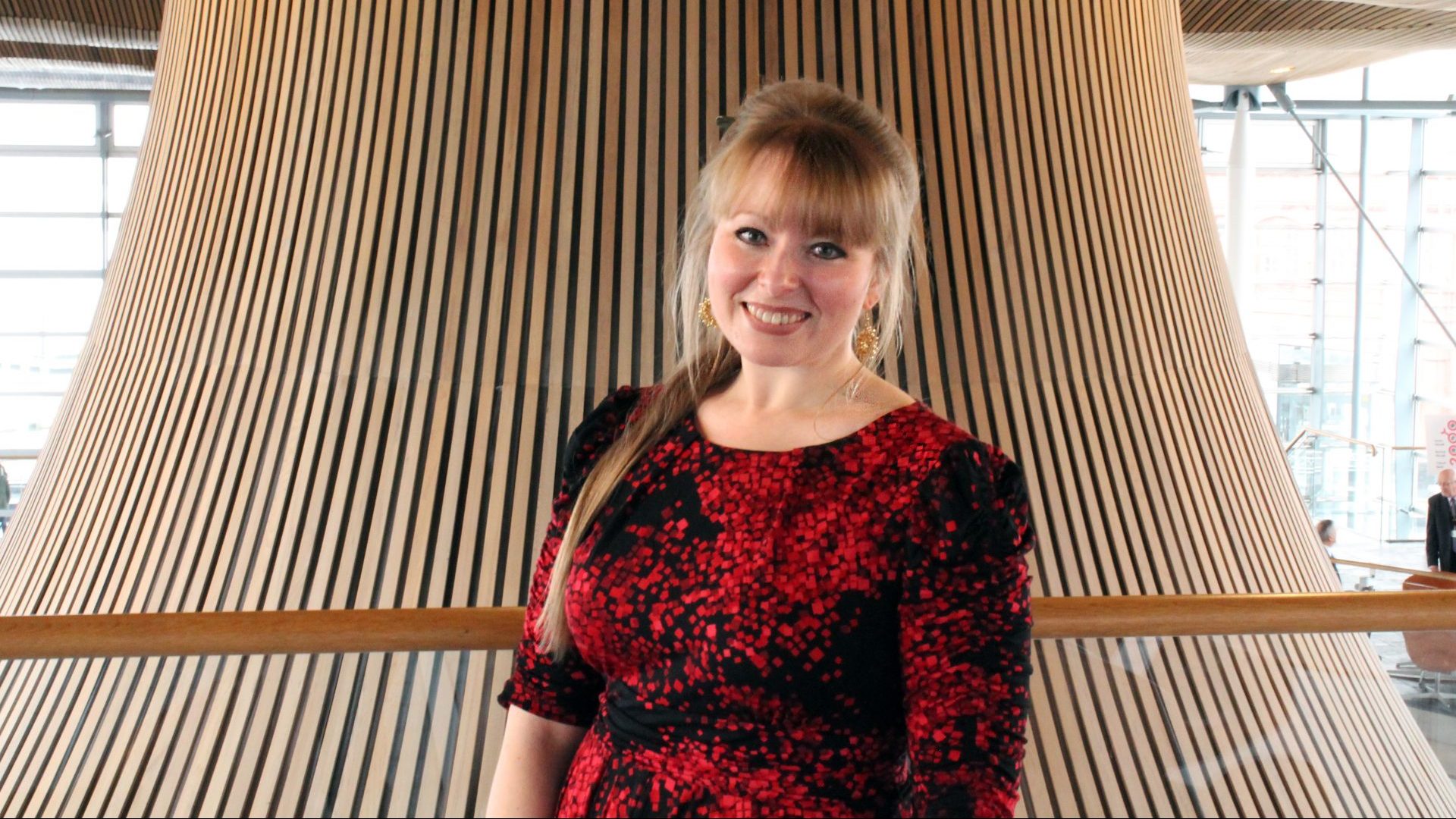“I have a very expressive face,” Delyth Jewell tells me, but she needn’t have for two reasons. Firstly, due to the smile that stretched across her face and the subsequent brief intermission that took place during our interview when she spotted the framed still from Pretty Women on the wall behind me, where Richard Gere presents Julia Roberts with an on-loan necklace. Secondly, as I had seen her performance on a recent episode of Question Time.
“You forget there is a camera on you all the time,” the Member of the Senedd for South Wales East region says before continuing to explain that this meant it was more than likely she was doing things on the panel that she probably shouldn’t have been. The issue in question that prompted such an array of facial expressions was Brexit, more specifically Brexit opportunities and Jacob Rees-Mogg.
In February, when Rees-Mogg was appointed to the newly concocted position of minister for Brexit opportunities and government efficiency it raised a few eyebrows, Jewell’s included. “I just can’t believe they’re able to do this with a straight face,” she laughs. While she can’t claim credit for the quip, for her the title “Brexit opportunist” is more apt.
“Wales is one of the areas of the UK that particularly benefited from structural funds from the European Union. These were distributed on a European level based on where the need was.” It directed wealth based on need and West Wales and The Valleys was one of the areas deemed in greatest need out of all of the EU. After the EU referendum vote Wales, which backed the Leave campaign to the tune of 52.5%, was told numerous times by members of the now cabinet that they would not be a penny worse off as a result of Brexit.
In reality, the UK is set to be billions of pounds worse off over a period of three years as these pledges are yet to come to fruition. Now, the Plaid Cymru politician wants some answers.
“There’s still a lack of clarity over how much communities in Wales are going to benefit the UK Shared Prosperity Fund (UKSPF),” she says. This absence of transparency likely originates from the news that this fund is worth 40% less each year than the EU funding it will replace, according to a Treasury committee’s report. Between 2014 and 2020, EU structural funds were worth on average £2.5bn a year, but it is estimated that the UKSPF will be worth only £1.5bn a year by 2024-25.
As for the rest of the government’s levelling-up agenda, she thinks it’s a “complete joke” – as is the fact there even needs to be a discussion about levelling up.
For Jewell, there has never been a proper mechanism in Westminster that remotely replicates structural funds. Even the Barnett formula, which is used to automatically adjust the amounts of public expenditure allocated to the devolved nations, doesn’t level up to this as it isn’t based on need, but on population. In her eyes, Westminster has never understood funding and how it needs to be correctly distributed.
“If the union worked properly and all areas of the UK benefited from the system we have then the levelling-up agenda wouldn’t exist,” she says. In such a utopia, its purpose would be rendered unnecessary.
Yet, this is not the state of play in the UK today. Whereas the EU displayed very clearly how it determined which areas would receive funding, “the Tories haven’t even tried to pretend the UKSPF is going to be something like that”. Instead, Jewell explains they have created a pork barrel system whereby the government will streamline finances to areas where they want to emerge victorious in a byelection.
“It’s a corrupt process,” she laughs in exasperation. Combine this chaos with Rees-Mogg being crowned as Brexit opportunities minister and, for Jewell, you are left with a plot that is “even a bit far-fetched for a satirical novel”.
“It would be a novel, by the way, because a character like him wouldn’t be in a film. You’d find him in an Evelyn Waugh book – more of his time,” she adds.
It may be the stuff of fiction, but the story didn’t have to be written this way. “There are no opportunities from Brexit,” she explains, “but particularly because of this Brexit.” If the government hadn’t completely severed ties with European partners instead of following this “warped ideology with pure determination of a ‘red, white and blue Brexit’” today’s status quo could be different.
“They ripped apart people’s lives. So many people have lost jobs and the way people work is being strangled by red tape,” continues Jewell. That is, except the man now in charge of delivering the benefits of this, who has managed to somewhat ascend the ranks. When he’s not outsourcing ideas for these positive outcomes from Brexit to readers of The Sun, he’s contributing to the confusion over recognising testing on industrial goods by the EU.
“The conflicting briefings that have been given to the press about this make for confusing reading. All these years, tariffs and red tape later, they still can’t seem to decide amongst themselves what Brexit was for,” says Jewell. “Rees-Mogg doesn’t just seem out of touch with the pain that Brexit is causing businesses, he also appears to be out of touch with what it is the government wants to achieve with its supposed new ‘freedom’.
“The worst of it is, he doesn’t seem to care. Added stresses and convoluted processes for businesses – they weren’t advertised on the side of a bus, were they? It just seems to be another example of the triumph of dogma over all else.”
And so, two scenarios are left. “Either the government genuinely don’t get it – and I don’t think it’s that for a moment – or they are trying to pull a fast one on us without a care in the world.” To put it another way, offers Jewell, either they are living in a “parallel universe” or they are laughing at the public knowing full well why it has taken almost six years for any benefits of leaving the EU to come to fruition – there aren’t any to be found.
The next chapter of this supposed satirical novel that’s planted its feet firmly in reality looks bleak with the cost-of-living crisis and the situation in Ukraine worsening.
In the meantime, Rees-Mogg has plenty of other addresses he can write to asking where the benefits of Brexit are, including 10 Downing Street. I imagine there are others wishing to do the same. Perhaps they can borrow his quill once he’s done.











